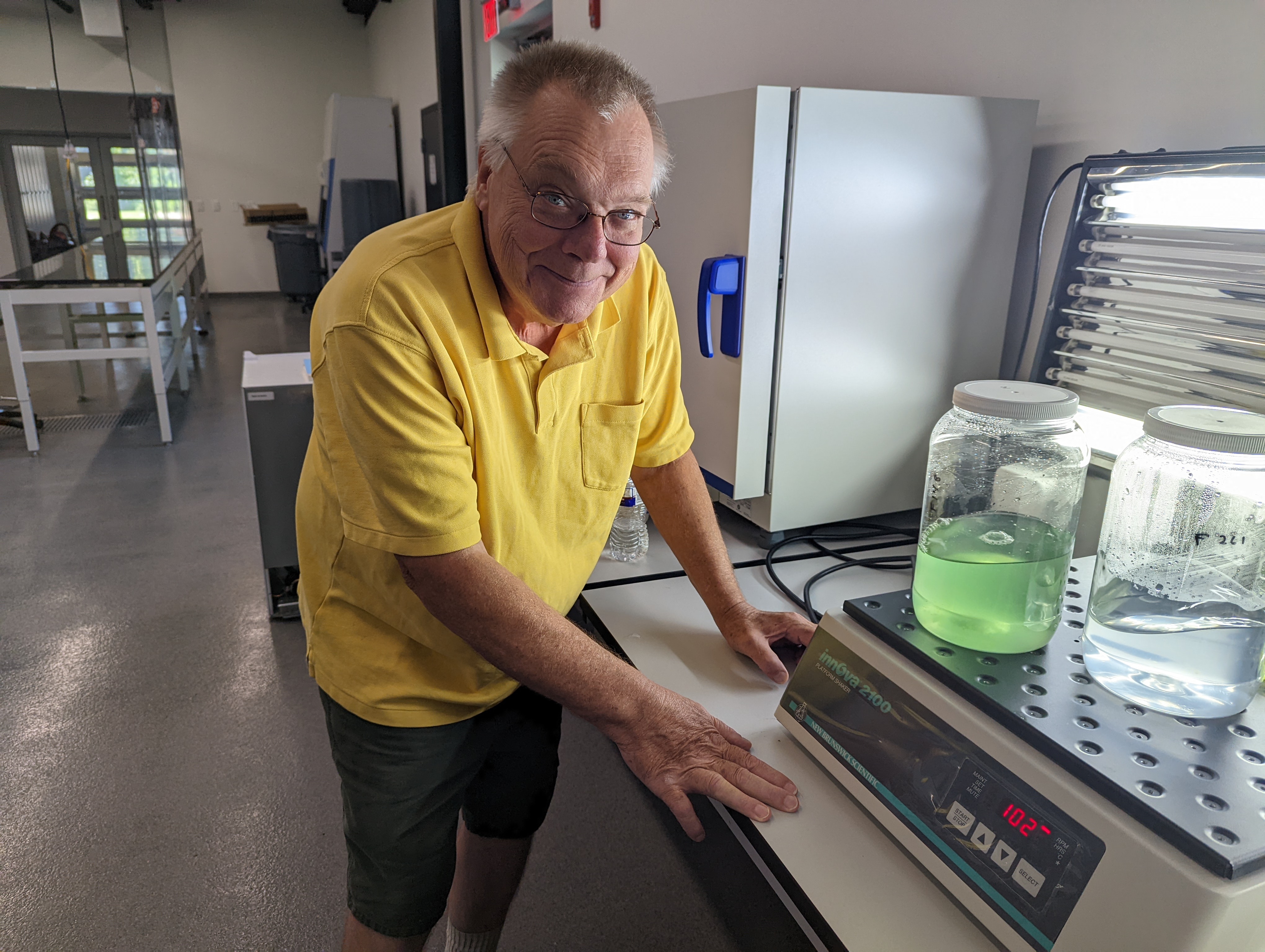Paul Zimba, Ph.D., joins Rice Rivers Center as research faculty
Feb. 1, 2023

Rice Rivers Center welcomes the addition of Paul V. Zimba, Ph.D. as a member of its on-site research faculty. Zimba is a former Director of the Center for Coastal Studies at Texas A&M Corpus Christi and Senior Microbiologist at the Warmwater National Aquaculture Center. He holds a Ph.D. in Biological Sciences from Mississippi State University, a Master of Science in Biological Sciences from Old Dominion University, and Bachelors of Arts in Biological Sciences from Virginia Wesleyan College.
“Dr. Zimba brings to Rice Rivers Center an amazing and diverse academic career as a phycologist and aquatic scientist,” states Rice Rivers Center Director Greg Garman, Ph.D. “We are very fortunate to be able to benefit from his deep knowledge and long experience.”
In October 2022, Zimba met with the North Fork Shenandoah River Riverkeeper and completed a three-mile trip via kayak, collecting several algal samples along the way. The samples include assorted cyanobacteria, an algae-producing anatoxin-a, and Spirogyra, a thin, thread-like green algae found on most of the surface of the limestone along the river. These samples will be part of upcoming research at the center.
Zimba is completing a field ultrasound mesocosm study in Florida to determine trophic impacts of its use controlling harmful algal blooms (HAB) in Lake Okeechobee. HAB research similar to what has been done in Florida will be modeled at the center. HABs are toxic and can have great impacts on the quality of water, as well as those who live near, fish from, and recreate in the affected water.
Recently, research done by Zimba has provided the first nomogram for predicting success in the dosing of peroxide as a treatment and control of HABs. His final Ph.D. student and Zimba also published a complete revision of algal toxin nomenclature based on structure and function, a paper occupying over 70 journal pages.
HABs routinely occur in Virginia in both marine and freshwaters. The Virginia Department of Health has a list and map of the algal blooms throughout the state, and is updated May through October.
For more information on Zimba’s work, visit his page in our directory section.